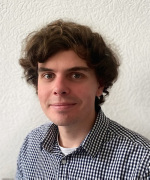People Analytics
 Foto: peopleimages/E+/Getty Images
Foto: peopleimages/E+/Getty Images
People Analytics is part of a more general shift in management relying on data (Davenport 2006). It is focusing on the real-time acquisition, analysis, and prediction of employee performance and engagement, work and collaboration patterns. The fundamental assumption is that human experience and intuition in organizational decision-making should, to a substantial degree, be replaced by data leading to an ’evidence-based’ form of human resource management and a data-driven culture (BI Trend Monitor 2020; Kremser/Brunauer 2019). By collecting and connecting a great variety of data, People Analytics is designed to establish new ways to predict, evaluate, and control individual and organizational behavior (Loi 2020; Sousa et al. 2019; Manuti/de Palma 2018; Leicht-Deobald et al. 2019; Goodell King 2016; Marler/Boudreau 2017), leading to new visibilities and algorithmically imposed hierarchies at the workplace. The high relevance of People Analytics for the future of work stands in stark contrast to a lacking empirical knowledge about the practices and effects of algorithm-based decision-making systems. The project analyzes the application and the implementation dynamics of People Analytics and its effects on employees’ self-management, managerial decision-making, and employment relations. With a systematic cross-case comparison of pioneering companies from Germany and Switzerland, it analyzes how a new regime of control based on data, calculation, and Artificial Intelligence is being negotiated organizationally. On the case study level, it aims to reveal the micro-foundations of People Analytics. In the comparative perspective, the influence of external software suppliers as well as company-specific data culture and data governance (including the role of national labor and data protection laws) on the implementation process are analyzed, thereby revealing specific data cultures governing economic life.
The project is being jointly funded by Deutsche Forschungsgemeinschaft DFG and Swiss National Science Foundation SNF. Therefore, two teams are collaborating closely. One team is located at the Hochschule Luzern Wirtschaft, led by Prof. Dr. Peter Kels, the other one at FernUniversität in Hagen, led by Prof. Dr. Uwe Vormbusch.
News
- Industrie Management 4.0 - Interview with Prof. Dr. Vormbusch
- FernUniversität in Hagen - Does More Data Create a Fairer Workplace?
Contact
 Foto: Volker Wiciok
Foto: Volker Wiciok
Prof. Dr. Uwe Vormbusch
Head of the research group
E-Mail: uwe.vormbusch
Telefon: +49 2331 987 4741
 Foto: Jennifer Wisniewski
Foto: Jennifer Wisniewski
Tom Philipp Buchberger
Staff member
E-Mail: tom-philipp.buchberger
Telefon: +49 2331 987 4756




